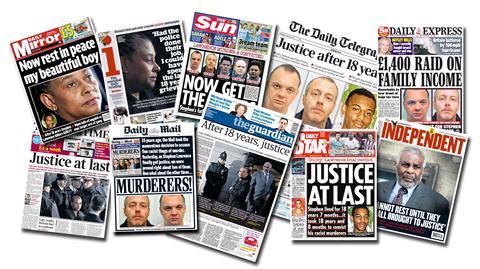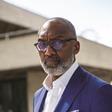31 years after Stephen Lawrence was brutally murdered, a review has concluded that the four detectives who ran the initial investigation should not face criminal charges. Former Met superintendent Leroy Logan explains why he won’t stop fighting for justice

In 1993, 18-year-old Stephen Lawrence was stabbed to death at a bus stop in Eltham, south London, in a racially motivated attack. His friend, Duwayne Brooks, survived. In the three decades since, the Metropolitan Police has faced multiple accusations of mishandling the initial investigation and attempting to cover up the corruption, incompetence and racism of the officers involved.
A litany of failures
In 1997, an inquest found that Stephen was “unlawfully killed by five white youths”. That same year, a Police Complaints Authority report identified “significant weaknesses, omissions and lost opportunities” in the original investigation. In 1999, the Macpherson Report concluded that the police investigation was “marred by a combination of professional incompetence, institutional racism and a failure of leadership by senior officers”.
A BBC documentary first alleged police corruption in the case of Stephen’s murder in 2006, but an investigation by the Independent Police Complaints Commission (IPPC) found no evidence. Nonetheless, four years later, a police detective was demoted for tampering with key dates and times on an evidence log.
In 2012, 19 long years after Stephen was killed, Gary Dobson and David Norris were finally convicted of murder, but many injustices remain.
This case is a travesty of justice and no one has yet been held accountable
In 2013, The Guardian reported that undercover police infiltrated the Lawrence family while the murder investigation was underway, looking for disinformation to discredit them. As a result, the Ellison Review was launched and the National Crime Agency began looking into alleged corruption during the investigation. It concluded that Commander Richard Walton, “had a case to answer” but he retired shortly after, and no action was taken.
In 2020, the investigation into Stephen’s murder was closed. Three years later, the BBC accused the force of seriously mishandling inquiries into Matthew White, who died in 2021. He was eventually named as the sixth suspect.
Last year, after an investigation that began back in 2015 following the Ellison Review, the Crown Prosecution Service (CPS) announced that no criminal charges would be brought against the four officers in charge of the initial inquiry into Stephen’s murder. Now, following an appeal, this decision has been upheld.
Institutional failings
When Sarah Everard was abducted, raped and murdered by a serving Metropolitan Police Officer in 2021, the subsequent Casey Review more or less reiterated what Macpherson had said decades earlier: not only was the Met racist, but it was sexist and homophobic, too. These failures have not gone away.
Stephen’s murder was a horrendous crime, and it has become a litmus test of policing black communities. If the offence itself wasn’t bad enough, the cover up has made it exponentially worse. The strength of feeling in the Black community cannot be overstated. This case is a travesty of justice, and no one has yet been held accountable.
Just as in the case of the Post Office scandal, it continues to take investigative journalists, TV programmes and the lobbying of individuals to shine a light on injustice. Only when the public outcry is loud enough do those in power take any action. But it’s just not good enough.
There has been no clear leadership; no-one standing up and saying: “This has to be looked at properly.” If trust in the police is ever to be restored, there must be no stone left unturned in bringing all of Stephen’s killers to justice, and dealing with why it has taken so long to do so. Now is the time for the police force to show integrity, accountability and transparency.
Standing up for justice
Martin Luther King said: “Justice delayed is justice denied.” Stephen’s family have been denied justice for far too long and something must be done. Baroness Lawrence is not just advocating for her son, but for all other victims of violent crime and police injustice. It’s got to stop.
As a Christian and an ex-police officer, I can’t just sit back and let corrupt officials run roughshod. In my work with the Black Police Association, giving evidence to the Macpherson inquiry, and now as part of the Alliance for Police Accountability, I am doing my bit. But we all need to do the same, to ensure that evil is overcome – whether that is on the streets or in the system.
The strength of feeling in the Black community cannot be overestimated
The Church has an important leadership role to play in this. We must speak out clearly - and keep speaking out. People will not be gaslit or fobbed off any longer. This latest setback has just further mobilised and galvanised people. Now is the time for the Church to come together - with other advocates in the community - to say: “This is not good enough. If these officers are not going to be held to account, someone has to be.” The Met cannot be allowed to mark their own homework any longer. It just does not add up.
Had this happened 40 years ago, I don’t think I would have joined the police force. That’s how disgusted I am with how this has been handled. That said, I always believed that joining the Met wasn’t a career, but a calling. We may not see the outcomes we want, but I know that God is able.
I am livid, but I won’t be discouraged. The truth will eventually come out.


































1 Reader's comment